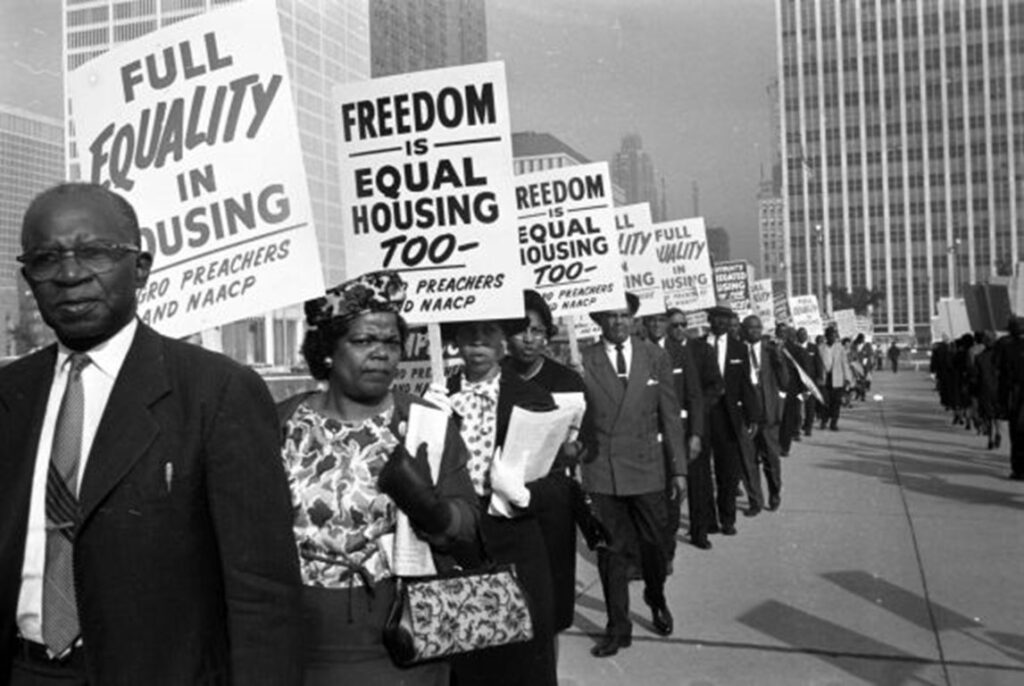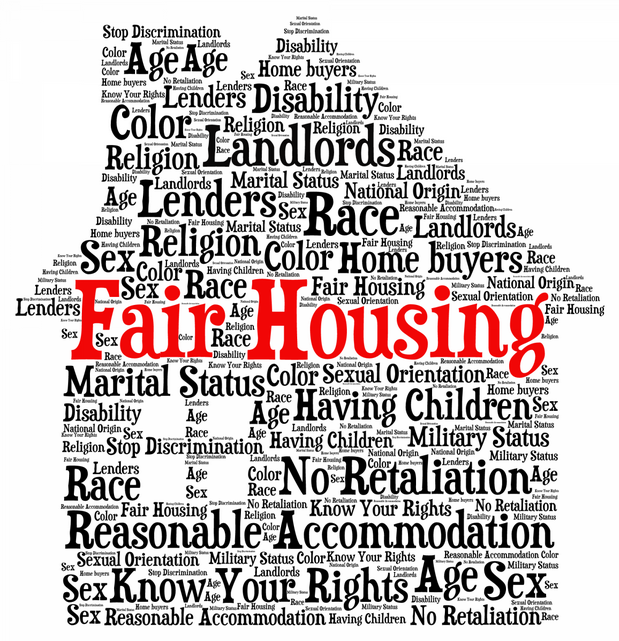The Fair Housing Act, enacted as part of the Civil Rights Act of 1968 under President Lyndon B. Johnson, was designed to eliminate discrimination in housing. Despite its passage over five decades ago, violations of fair housing principles persist. For property managers, compliance with these laws is not only a legal obligation but also a professional and ethical imperative. Failing to adhere to these standards can result in lawsuits, reputational damage, and substantial financial penalties. We look at key aspects of fair housing laws that property managers must understand, highlighting common challenges and best practices for compliance.

What is the Scope and Purpose of US Fair Housing Laws?
Fair housing laws were established to prohibit discrimination based on race, color, religion, national origin, sex, disability, and familial status. These protections have since been expanded in many jurisdictions to include additional categories such as sexual orientation, gender identity, and source of income.
For property managers, navigating these laws means ensuring that all aspects of property leasing, marketing, tenant screening, and day-to-day interactions are free from discriminatory practices. While the intent of the law may seem straightforward, its application can be nuanced, requiring vigilance and ongoing education.

Advertising: Property Managers Sometimes Walk a Fine Line
Property advertisements are a common area where unintentional violations can occur. Federal regulations dictate that advertisements must not include language that could be interpreted as exclusionary or discriminatory. For instance, phrases such as “family-friendly neighborhood” or “ideal for single professionals” may imply that certain groups are preferred, potentially excluding others.
What are the Best Practices for Code Compliant Advertising?
- Use neutral, fact-based descriptions of the property and its features. For example, instead of “safe neighborhood,” describe specific attributes such as “proximity to schools” or “quiet cul-de-sac.”
- Include a fair housing disclaimer in all marketing materials. A statement like, “We comply with the Fair Housing Act and do not discriminate based on race, color, religion, national origin, sex, disability, or familial status,” signals commitment to equitable practices.
- Avoid images or messaging that could be perceived as targeting or excluding certain demographic groups.
Property managers must audit their advertising content regularly to ensure it aligns with these guidelines. When in doubt, consulting with a legal advisor can help avoid potential pitfalls.

Tenant Screening: Transparency is Key for Property Management Companies
Tenant screening is another area where property managers must tread carefully. Decisions regarding tenant approval must be based on objective, documented criteria rather than subjective judgments. A well-defined screening policy not only ensures fairness but also protects against claims of discrimination.
What are the Components of a Fair Tenant Screening Policy:
- Clear Criteria: Develop a written policy outlining minimum qualifications such as income requirements, credit score thresholds, rental history, and criminal background checks.
- Consistency: Apply the same standards to all applicants to avoid accusations of favoritism or bias.
- Documentation: Maintain thorough records of applicant evaluations and decisions. This can provide critical evidence if a rejected applicant challenges the decision.
For example, denying a tenant due to a poor credit score is permissible if creditworthiness is a documented requirement applied uniformly. However, denying an applicant without providing a clear explanation or failing to document the decision process can raise suspicions of bias.
How do Property Managers Navigate Disability Accommodations?
One of the more complex aspects of fair housing compliance involves accommodations for tenants with disabilities. Property managers are required to make reasonable accommodations or modifications to ensure that tenants with disabilities can fully enjoy their housing. This might include installing ramps, allowing service animals, or making exceptions to policies like “no pets.”
What are the Key Considerations for Disability Issues?
- Reasonableness: Accommodations should not impose an undue financial or administrative burden on the property owner.
- Proactivity: Managers should familiarize themselves with common accommodation requests and have a plan for addressing them promptly and professionally.
- Documentation: Retain records of accommodation requests and responses to demonstrate compliance with fair housing requirements.
Are Property Managers Required to Understand Local Laws?
While the Fair Housing Act sets federal standards, many states and municipalities have enacted additional protections. For example, California prohibits discrimination based on source of income, including Section 8 housing vouchers. Property managers must stay informed about local regulations to ensure full compliance.
Property Managers Must Stay Updated:
- Attend regular fair housing training sessions or seminars.
- Partner with legal professionals or fair housing organizations to stay informed of legislative changes.
- Review and update property management policies annually to reflect current laws.
Property Managers Should Build a Culture of Compliance
Compliance with fair housing laws is not a one-time effort but an ongoing commitment. Property managers should foster a culture of inclusivity and accountability within their organizations. Training staff, implementing robust policies, and promoting transparency are critical steps in achieving this goal.
What are Practical Steps to Promote Fair Housing?
- Provide mandatory fair housing training for all team members.
- Establish an internal audit process to review marketing, leasing, and tenant interaction practices.
- Encourage open dialogue with tenants and staff about diversity and inclusion.
Conclusion
Fair housing compliance is a cornerstone of ethical property management. While the legal landscape can be complex, understanding the fundamental principles and implementing best practices can help property managers navigate these challenges effectively. By adhering to fair housing laws, property managers not only protect themselves and their clients from legal risks but also contribute to a more equitable housing market for all. In 2025 and beyond, staying proactive, informed, and committed to compliance will ensure that property managers continue to uphold the highest standards of professionalism and fairness.

David currently is the broker/owner of several real estate related businesses which manage and maintain 300+ client properties on the San Francisco Peninsula.
Trust, transparency, and performance guarantees are the foundation of these businesses. David challenges anyone to find a PM professional that offers services similar - extensive education, customer service, and performance guarantees.
David also provides consulting for his clients on property development feasibility, construction, and complex real estate transactions.
David has authored a published law review article, three real estate books, and over 150+ real estate blog articles.
- “Wildfires, Insurance & Mortgages: Will Your Home Survive the Financial Aftermath?” - March 3, 2025
- What’s Driving California’s Commercial Real Estate Shakeup? - February 27, 2025
- Critical Issues in Triple Net Leases Investors Should Know - February 14, 2025

